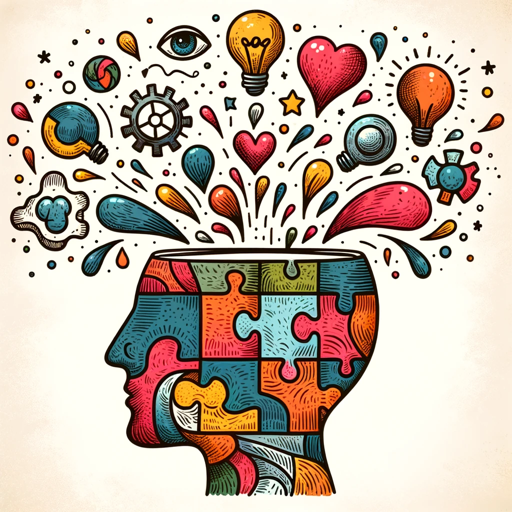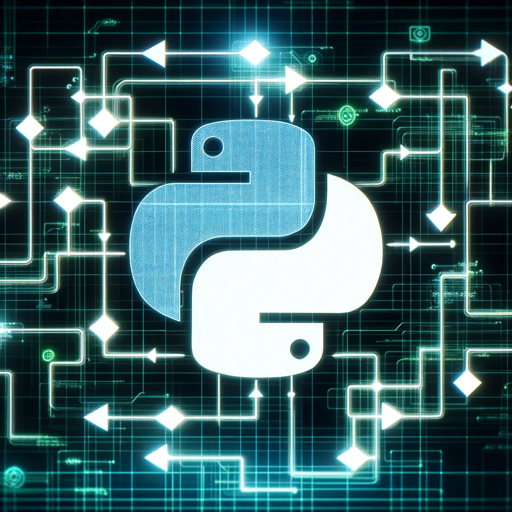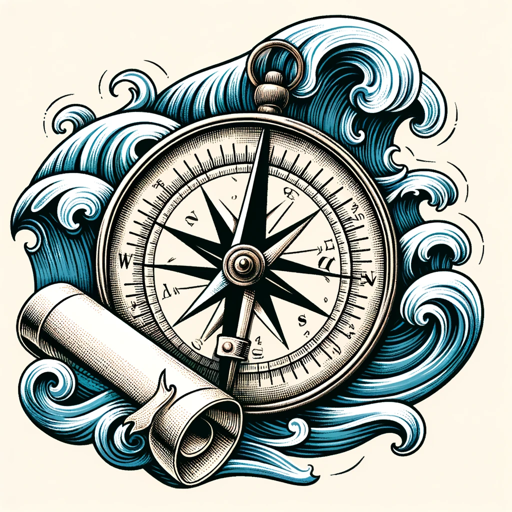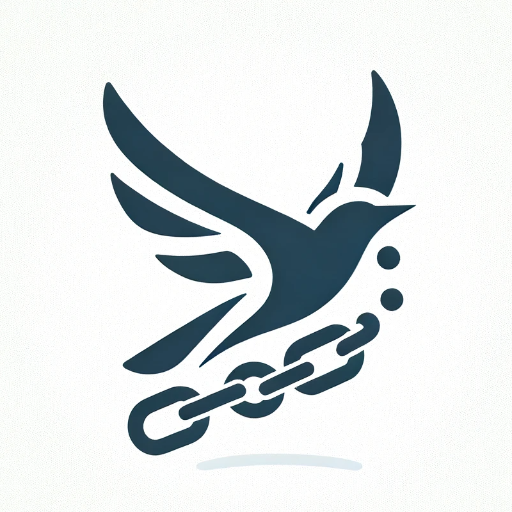Big 5 Personality Test-personality assessment, five key traits.
AI-Powered Insight into Your Personality
Begin
Describe Test
Start Test
Let's Do This
Related Tools
Load More
Распаковщик личности
Профессиональный распаковщик личности, смысловик, сценарист прогревов, контент-планировщик.

Big5性格特性診断LLM
PsyCoTの論文に基づき作成しました。詳細→ https://x.com/ai_database/status/1725497433227231307

Enneagram > Coachfully.AI
I'll help you leverage the Enneagram into a better understanding of yourself and others.

SocionicsGPT
Will mislabel with MBTI and mix up functions at times, but explanations are accurate. Simply correct him and proceed. For questions about practical intertype relations, specify the types AND label (IEI-SLE Duality), then ask away!
☯️ Smart Talk: Personality Type Strategies
Refine your grasp of personality types and love languages to enhance your personal and professional interactions. Engage in simulations like "I said, they heard" to explore the diverse traits of family, friend, team and audience dynamics, navigating compl

Big Five Personality Game
A playful and friendly GPT hosting a Big Five Personality Game.
20.0 / 5 (200 votes)
Introduction to the Big 5 Personality Test
The Big 5 Personality Test, also known as the Five-Factor Model (FFM), is a psychological assessment tool designed to measure five broad dimensions of personality: Openness, Conscientiousness, Extraversion, Agreeableness, and Neuroticism (often remembered by the acronym OCEAN). The test is rooted in decades of psychological research and is used to provide insight into individual personality traits, which can influence various aspects of life, such as behavior, career choices, interpersonal relationships, and personal development. The design purpose of this test is to offer a nuanced understanding of these traits, allowing users to explore their personality profile in depth. For instance, someone with high Openness might be more creative and open to new experiences, while someone with high Conscientiousness might be more organized and dependable. The test is often used in settings ranging from personal growth to professional development and psychological research.

Main Functions of the Big 5 Personality Test
Personality Profiling
Example
A user takes the test and receives a detailed report on where they stand on the five personality dimensions. For example, the test might reveal that the user scores high in Extraversion and low in Neuroticism, suggesting they are outgoing and emotionally stable.
Scenario
A company might use this function to better understand the personalities of their employees, helping to create more effective teams by balancing different personality traits.
Personal Development Planning
Example
After receiving their test results, a user identifies that they have lower scores in Conscientiousness, which might indicate challenges with organization and focus. They can then use this insight to work on personal development strategies, such as time management techniques or organizational skills.
Scenario
An individual might take the test as part of a self-improvement plan, using the insights to focus on specific areas of their life that they want to enhance, such as improving their reliability and attention to detail in work settings.
Compatibility and Relationship Building
Example
Two partners take the test and compare their results. One partner is high in Agreeableness, while the other is lower in this trait. Understanding these differences can help them navigate their relationship by fostering communication and empathy.
Scenario
Couples or business partners might use this function to better understand each other's personality traits, leading to improved communication and collaboration by recognizing and respecting each other's differences.
Ideal Users of the Big 5 Personality Test
Individuals Seeking Self-Understanding
People who are interested in gaining a deeper understanding of their own personality traits, strengths, and potential areas for growth. These users benefit from the test by obtaining actionable insights that can guide their personal and professional development, helping them to set goals aligned with their personality.
Human Resources and Organizational Development Professionals
HR professionals and organizational developers who want to utilize personality assessments for hiring, team building, and improving workplace dynamics. The test provides them with valuable data to make informed decisions about employee placement, team composition, and leadership development programs.

How to Use Big 5 Personality Test
Step 1
Visit aichatonline.org for a free trial without login, also no need for ChatGPT Plus.
Step 2
Familiarize yourself with the structure of the Big 5 Personality Test. Understand that it assesses five core traits: openness, conscientiousness, extroversion, agreeableness, and neuroticism.
Step 3
Begin the test by responding to a series of statements. You'll choose from five response options: agree, slightly agree, neutral, slightly disagree, disagree.
Step 4
Complete all sections of the test, ensuring that you answer honestly for the most accurate assessment. The test may ask 2-5 questions per trait, with additional questions if clarity is needed.
Step 5
Review your results, which will highlight your strengths, potential weaknesses, and areas for personal development. Use these insights to better understand your personality and how it affects various aspects of your life.
Try other advanced and practical GPTs
メルカリ出品アシスタント
AI-driven tool for crafting product descriptions

Job Finder
Find Your Next Job with AI Assistance

Website GPT 2.0
AI-powered website creation made simple

Pivot Table Generator
AI-powered Pivot Table Generator for Effortless Data Analysis.

100M Lead Magnet Creator
AI-powered lead generation tool.

AI-Powered SPSS Aid: Manuscript Interpretation
AI-Powered Insights for SPSS Data

Python Code to Diagram Assistant
AI-powered diagram generation from Python code

Auteur Virtuel
AI-powered writing for all genres

MicroSims for Education
AI-powered tool for interactive learning simulations

Maritime Law Navigator
AI-powered insights for maritime law.

FANZAソムリエ
AI-Powered FANZA Content Finder

Image Anti-Censorship
AI-Powered Image Creation, Policy Compliant.

- Personal growth
- Career Planning
- Team Building
- Research Tool
- Self-Assessment
Big 5 Personality Test: Common Questions & Answers
What is the Big 5 Personality Test?
The Big 5 Personality Test is a psychological assessment that measures five major dimensions of personality: openness, conscientiousness, extroversion, agreeableness, and neuroticism. These traits are considered to be the foundation of human personality.
How long does it take to complete the Big 5 Personality Test?
The test typically takes around 10-15 minutes to complete. The exact time can vary depending on how quickly you respond to the questions. The test adapts slightly if additional clarity is needed in certain areas.
How accurate is the Big 5 Personality Test?
The Big 5 Personality Test is backed by decades of psychological research and is considered one of the most reliable assessments for measuring personality traits. However, the accuracy also depends on how honestly and thoughtfully you answer the questions.
Can the results of the Big 5 Personality Test change over time?
Yes, your results can change over time, especially if you've undergone significant life experiences or personal growth. While core traits may remain stable, some aspects of your personality can evolve.
What can I do with the results of the Big 5 Personality Test?
The results can be used for personal insight, self-improvement, and understanding how your personality influences your interactions and decisions. They are also valuable in professional settings, such as career planning, team building, and leadership development.